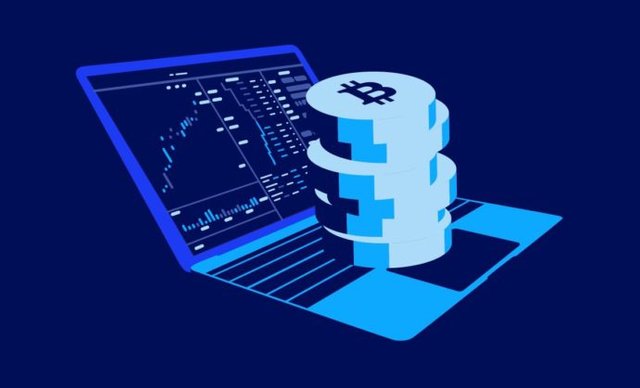
Two weeks ago, the Central Bank of Nigeria (CBN) requested that banks and other financial institutions close the accounts of cryptocurrency exchanges in the country, causing a ruckus.
Its reasons (which have since been countered) were focused on how crypto is used for fraudulent purposes and the anonymity of crypto users.
It’s important to note that the CBN didn’t ban cryptocurrencies in Nigeria; you’d have to outlaw crypto exchanges and shut down the internet to achieve that.
What the Central Bank of Nigeria did was cut the link between crypto exchanges and their users.
Using the analogy of a delivery system, think of it as them refusing to let trucks (i.e. crypto exchanges like BuyCoins, Bundle, Luno and Quidax) deliver goods (crypto) to consumers through its bridges (banks and payment companies that facilitate the flow of funds).
TechCabal
Here’s how Nigerian cryptocurrency exchanges are responding to CBN’s Ban
Daniel Adeyemi
19th February 2021
Share this article
TwitterLinkedInWhatsAppFacebookEmail
Two weeks ago, the Central Bank of Nigeria (CBN) requested that banks and other financial institutions close the accounts of cryptocurrency exchanges in the country, causing a ruckus.
Its reasons (which have since been countered) were focused on how crypto is used for fraudulent purposes and the anonymity of crypto users.
It’s important to note that the CBN didn’t ban cryptocurrencies in Nigeria; you’d have to outlaw crypto exchanges and shut down the internet to achieve that.
What the Central Bank of Nigeria did was cut the link between crypto exchanges and their users.
Using the analogy of a delivery system, think of it as them refusing to let trucks (i.e. crypto exchanges like BuyCoins, Bundle, Luno and Quidax) deliver goods (crypto) to consumers through its bridges (banks and payment companies that facilitate the flow of funds).
In response to the ban, various crypto exchanges have been compelled to announce possible next steps to their customers.
Peer to Peer (P2P) trading
Think of it as an act that finds two people transacting directly without an intermediary or third party.
Crypto P2P: In this case, people who want to sell bitcoin put up their offer and interested buyers bid for it. This happens on the blockchain network.
It could be slower than the previous trading arrangement because you’d need to be matched with someone else who wants your offer.
However, because a lot of people are trading crypto, the wait shouldn’t be long.
Naira P2P: Before crypto exchanges became popular, the primary way people bought or sold cryptocurrencies was by finding buyers or sellers and transacting with them using their bank accounts. This model has co-existed with the exchanges, however, people favoured using exchanges because of the trust element.
As a result of this ban, crypto exchanges are stepping in to help out by providing some form of scrutiny. They help by connecting verified interested parties.
The exchanges cannot absolutely guarantee that the person you’re sending money to is not fraudulent but what they have are the details of the person on their platforms.
One more thing to note here is that because crypto transactions are banned, the descriptions of bank transfers will not be crypto-related.
Use of alternative currencies
Since the major constraint here is to not trade crypto using Naira, crypto exchanges have decided to include an option for people to trade using other currencies.
Dollar: Exchanges like Quidax allow their users to trade with the US dollar – the world’s most traded currency.
This option works best for people with foreign bank accounts, as Nigerian dollar domiciliary accounts are still under the purview of the CBN.
Stable coin: As the name implies, stablecoins are cryptocurrencies that are less volatile than other crypto assets.
Think of it this way: it’s common to see the value of cryptocurrencies move in excess of 10% in either direction within a few hours. So by 10 am 1 Bitcoin could be $34,000 and then by 1 pm 1 Bitcoin could be anywhere from $37,000 to $30,000.
This makes many cryptocurrencies unsuitable for everyday public use. To minimize the price swings that occur in a crypto asset, stable coins were created.
They are usually pegged to fiat currencies like the dollar and some exchange-traded commodities.
In 2020, Buycoins introduced the Naira token (NGNT), a digital currency clone of the naira; a stablecoin.
NGNT is backed by the world’s leading digital dollar stablecoin – USDC. USDC is issued by regulated financial institutions in the United States. 1 NGNT is equal to 1 Naira.
The goal of this stablecoin is to ease the transition from fiat currency (Naira) to cryptocurrency. Once the transition is done, crypto traders don’t have to worry about being affected by the government’s ban.
While this is a good development, there are questions around how people can buy or sell the NGNT without the regulator interfering. Also, it’s worth keeping an eye on the stability of this stablecoin, as it’s possible for it to become unstable.
Expanding to other African countries
Crypto exchanges like Quidax and Bundle have announced plans to expand into other African countries. Their plans make business sense and reduce the risk of running a business that’s solely reliant on the Nigerian market.
So there it is: Peer to peer trading, use of alternative currencies, and expansion to other African countries.
Despite all these moves, the exchanges are still figuring out how to adapt to these changes pending a reversal from the regulator – if it ever happens.
And while the figuring out is happening, it could spur the creation of new products, as well as increase the number of direct crypto transactions e.g buying a new car using bitcoin – Hello Tesla!